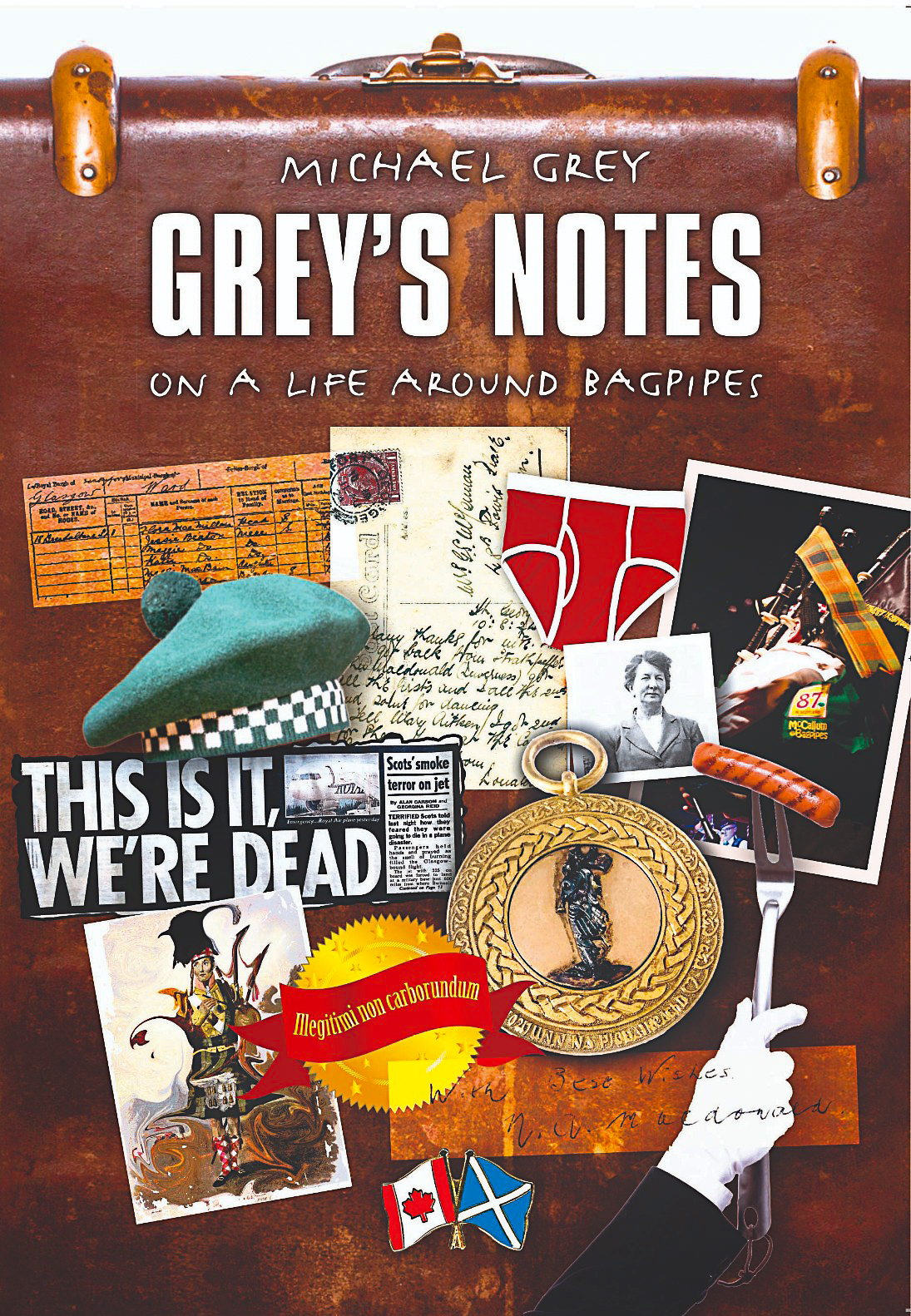What Makes a Good Pipe Band Score Sheet?
September 15, 2010 on 9:25 pm by Michael Grey | In Music, Pipe Bands, Tips, Whinges | 5 CommentsHaving been around the game a while it sort of stands to reason that I will have seen a whackload of pipe band “score sheets”; you know, those near-impossible to read pages (sometimes due to penmanship) passed to bands following the announcement of results. And yay, reason prevails: I have.
It’s on these pages that bands usually learn what adjudicators thought of their competitive performance – and, by the way, it’s from these pages that pipebandspeople generally judge adjudicators. I’m a sentimental sort, believe it or not, and have, truth be told, quite a few pages dating back to my earliest times with bands laying around the old archives – and some recent artefacts, too.
As I came to the very end of this past contest season I came to reflect on what made up a good adjudicator’s sheet.
Sheets are always passed around the band and it struck me that not all members value the same comments. Yeah, drummers tend to focus on percussion [hello!] and pipers on piping. But when I thought about it, it struck me that really, it was the overall band comments that most often caught the attention of pipebandspeople – generally speaking.
When I say “overall” I mean comment that either provided insight on ensemble, the overall ability of the band to engage the listener, or comment that somehow came across in a way that pulled the band — or “tribe”, if you will — together. I’ve observed that should comment from any one judge be viewed by band members as patently unfair the outcome usually sees the band pull together in a sort of collective indignation. Bad sheets can be a weird sort of team-builder.
“Bass drum destroying the ensemble”, “snare phrasing completely undermines melodic line”, “a completely dispassionate performance” and “musically devoid” are possibly imagined examples of “bad sheet” that effectively team-builds.
I like sheets that reflect the personality of the assesor – unless, of course, s\he’s an unhappy, miserable, unhelpful sort, then, not so much. In my part of the world, at least, it’s not completely out of the ordinary to read a comment from a piping judge that goes something like, “Bill missed the attack” or “Jenny’s harmony effort really worked for me” or “I thought Bruce was going to hyperventilate by the end of the performance”. It’s a small world and I’m good with judges naming names when comment is passed along in a collegial, fair and respectful way. These sample comments are all fictitious, for the record – but, I assure you, I’ve seen variations on all of these sorts of comments – and then some. I’m sure you have, too.
Anyway, just what makes good pipe band score sheet comment? The kind of comment that connects with bandspeople?
I suggest comment most valued by pipebandspeople has characteristics that include:
First and foremost, jargon-free notes around fundamentals, the “media”, the instrumentation and technique used to create the music: Impartial comments that assess the objective mechanics of the performance: Did we play unanimously [oops, jargon-alert, I mean, did we play together]? To what degree were we tuned? Did we sustain that tuning? Judges that have the ability to clearly and unambiguously portray an assessment around these elements score big-time with pipe band folk. Should they miss this – and they do – and have – they are usually summarily proclaimed incompetent (to put it in a PC way).
At the same time – I hesitate to say “secondly” – judges that have the courage to state a musical bias while stating informed musical reasons for that bias are usually appreciated – or – at the very least, remembered. We’re talking an assessment of music, after all. A good judgey comment in this department, to my mind, might go something like this: “march unsettled-feeling; pipe corps lacking unison due to phrasing ahead of the beat, especially at PM’s side of band”. This would fit in a sort of primary musical comment category. A secondary category might be around a melody or musical passage: “on first listen the repetitiveness of ____ tune’s phrasing left me cold”. Or, better yet, a positive musical comment: “the surprising minor-major key change to the second melody moved me – love it”. If comment is stated respectfully it really is hard to fault.
So what makes a good pipe band score sheet? Considered, fair, balanced and, I say again, respectful comment around mechanics and music. I think that’s it. To somehow portray listener engagement would be fantastic but really, for now, I suggest pipebandspeople would be happy with a fair and respectful shout out around mechanics and music.
And by extension? What makes a great pipe band adjudicator? A person who not only capitalizes on their experience but rises above that sphere of experience and reflects, processes and considers a result in a way that demonstrates intellectual and personal integrity. A person who has demonstrated a love for the music by being a life-long student of the music and not a self-proclaimed life-long authority on the music. It’s a tall order and, happily, most of the adjudicators I have encountered around the world fit this category.
It’s the very few who fail miserably. To those few I point to Van “the Man” Morrison for inspiration: “You can’t stay the same. If you’re a musician…you have to change, that’s the way it works”.
Give me the argument against that.
M.
5 Comments
Sorry, the comment form is closed at this time.
Dunaber is using WordPress customized and designed by Yoann Le Goff from A Eneb Productions.
 Entries and comments
feeds.
Valid XHTML and CSS.
Entries and comments
feeds.
Valid XHTML and CSS.






Absolutely terrific post – it’s a complex matter to cover but you’ve done it with great insight. Very informative to players and non-players alike.
Comment by Mikael — September 16, 2010 #
I think I know what “dispassionate” means. There are few things more aggravating in piping and drumming than a person with “authority” who misuses fancy words. Dispassionate means calm, or in control, or . . . unbiased. So Bob Shepherd thought the Toronto Police medley at Cowal was calm, in control and unbiased?! Gotta love them £100 words (er, make that £75 . . .) in the adjudicator (never just simply “judge”) glossary of malaprops.
Comment by aberthoff — September 16, 2010 #
Thanks for your comments guys. I never said who wrote “dispassionate”. I would not not say you were wrong in your guess.
M.
Comment by Michael Grey — September 16, 2010 #
I’ve seen other scoresheets of BS’s in which he uses the word, so immediately assumed. “Insipid” is/was another £100 word I’ve seen.
Comment by aberthoff — September 16, 2010 #
Outside of saying something on a score sheet that invokes a person’s mother in a bad sort of way I can’t think of a more offensive word to use than “insipid” [“…without distinctive, interesting, or stimulating qualities; vapid…”]. I suppose that’s why people use it. A shame. M.
Comment by Michael Grey — September 16, 2010 #